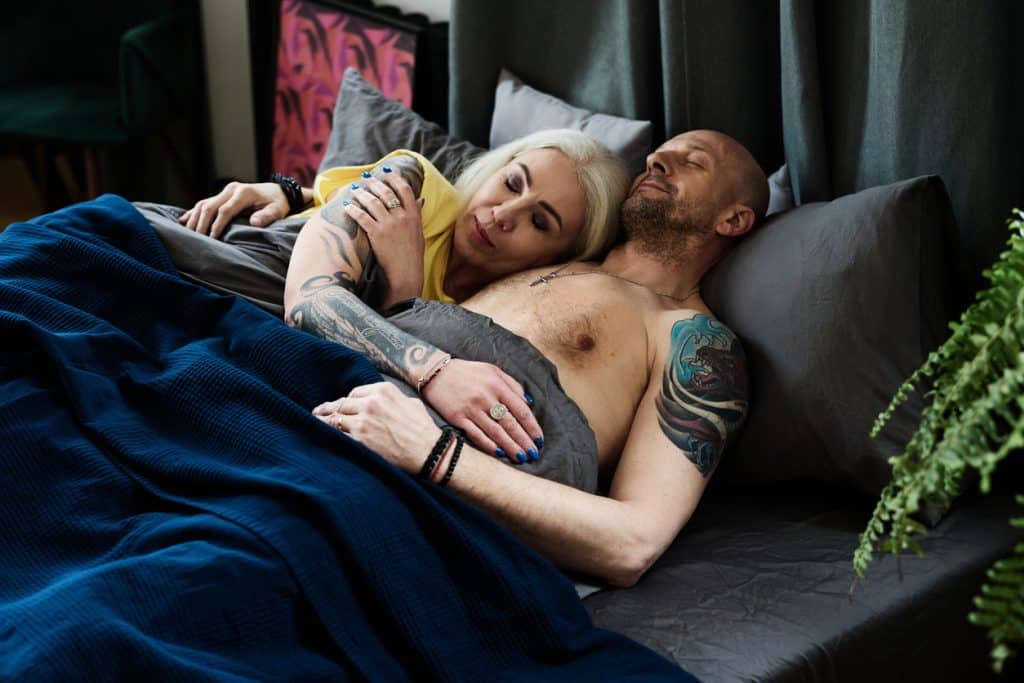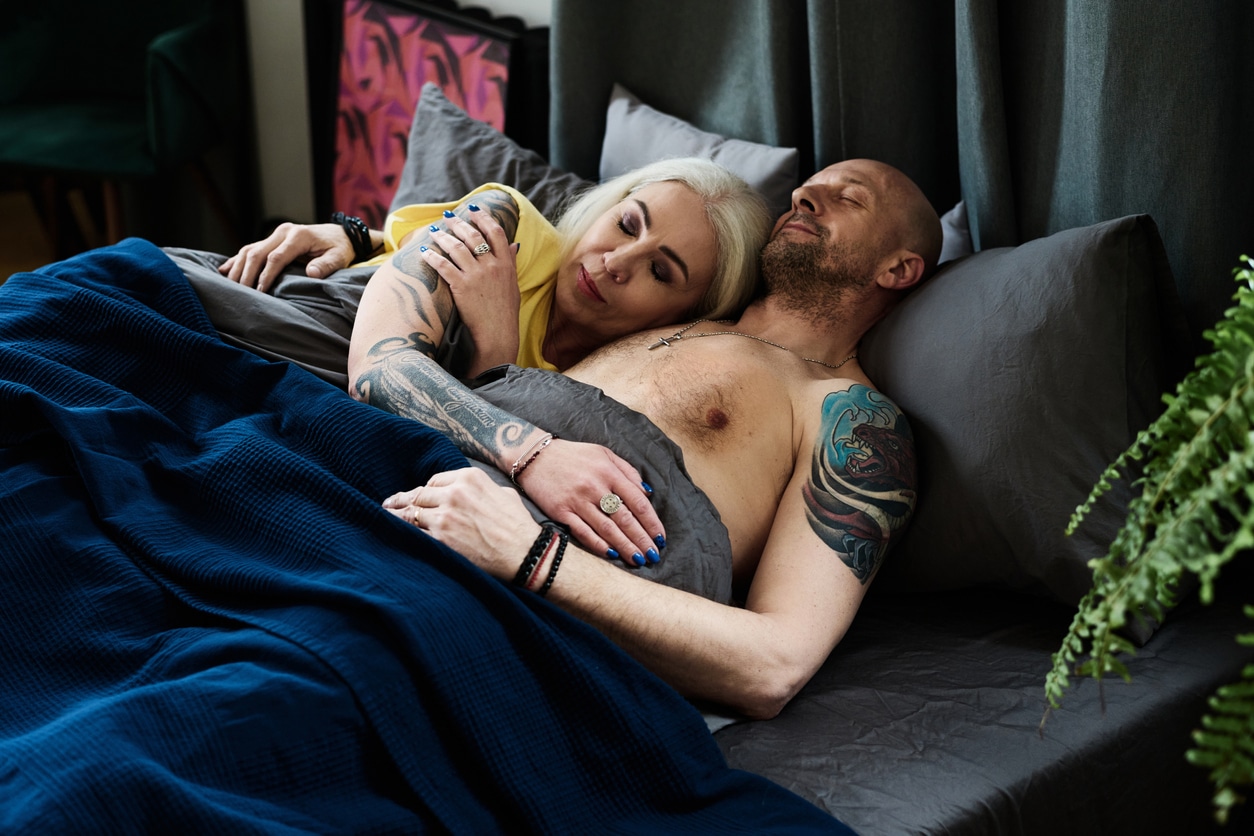Tattoos are an increasingly popular form of body art, but getting one can be more taxing on your body than you might think. Many people experience tiredness or fatigue after getting a tattoo. But why is this the case? In this blog post, we’ll explore the reasons why getting a tattoo can make you feel so drained and what you can do to minimize these effects. So if you’re considering adding some permanent ink to your skin, read on to find out all there is to know about post-tattoo exhaustion!
What is tattoo flu?
Tattoo flu, also known as ‘tattoo fever’, is a common reaction which can occur after receiving a tattoo. It’s characterized by typical flu symptoms such as fever, cold chills, fatigue, tiredness, soreness, feeling weak, and sometimes stomach issues or diarrhea. The most common symptom of tattoo flu is swelling of the tattooed area. Other symptoms may include nausea and possible vomiting.
Although it is not an allergic reaction or infection, the symptoms of tattoo flu can be uncomfortable and even painful in some cases. It’s important to note that this type of reaction is normal and generally harmless; however if you experience any worsening of signs or symptoms then it would be wise to visit your doctor for advice.
The cause of the tattoo flu is not completely understood but it is likely linked to an immune system response to foreign particles introduced during the tattooing procedure. Tattoo ink contains small amounts of metals such as iron oxide which could trigger an immune response when injected into the skin leading to inflammation and other side effects like those associated with tattoo fever.

Why does getting a tattoo make you tired?
Getting a tattoo makes you tired because of your body’s response to the ‘wound’ and the healing process.
Tattoos involve your skin being punctured hundreds or even thousands of times by needles, which causes a wound in your skin that your body needs to heal. his healing response causes an increase in white blood cells in the area, which then helps to repair the damage done by the needles and prevent infection from occurring. What’s more, this healing process also triggers your body’s stress response; adrenaline levels increase, your immune system is triggered, and hormones are released – all of these things can cause fatigue or exhaustion.
The immune system plays an important role in the fatigue felt after getting a tattoo. When the white blood cells rush to fight off any potential infection caused by the needle, they release inflammatory molecules which cause swelling and pain to your surrounding tissue—all while using up energy that could have otherwise been used for other tasks like physical activity or mental focus. In addition, this inflammation can lead to dehydration which further contributes to feelings of weakness and exhaustion.
It doesn’t matter if you’re working with an experienced tattoo artist or expert – tattoos involve pain and discomfort, no matter what kind you get. Even if you’re used to the sensation of tattoos, getting a new one can still be draining.
Not only does getting a tattoo involve physical exertion that requires energy from your body but it can also be quite an intense experience emotionally. Most people feel some degree of fear or anxiety before getting a tattoo, especially if they are having their first tattoo done or are unsure about what will happen during the session itself. This emotional response releases hormones such as cortisol into the bloodstream which further contributes to feelings of fatigue after the session has ended.
Finally, depending on where on the body you’re getting your art and how long it takes, you might find yourself sitting still for extended periods of time throughout the tattoo appointment. It’s common for people who have just finished getting a large-scale piece on their back or arm to feel like they’ve been exercising intensely due to all the energy used from staying in such fixed positions for so long!
So overall, the tattoo process involves multiple steps and processes that require both physical and emotional energy from us – all of which can add up quickly over time and result in feeling completely exhausted after we leave the chair!
How can you stop feeling tired after a tattoo?
The best way to stop feeling tired after getting a tattoo is by taking preventative steps before and after the procedure.
It goes without saying that you should choose a reputable tattoo artist and tattoo studio. This will reduce the chance of skin infections or tattoo infection.
Before you get a tattoo, it’s important to get plenty of rest and make sure that you are properly hydrated. During the tattooing process, try to keep your body relaxed and take frequent breaks when necessary in order to allow your body some time to recover from the strain. After the session is finished, it’s important to prioritize healing over aesthetic concerns. Make sure that you follow all of your artist’s instructions for caring for your new ink, such as keeping it clean and moist with a non-toxic ointment or petroleum jelly.
It’s also important to take care of yourself physically after getting a tattoo by eating nutrient-rich foods, drinking plenty of fluids, and getting quality sleep. If you’re experiencing more than usual exhaustion post-tattoo, consider light exercise to help stimulate blood flow and energy levels. Taking short walks or engaging in light yoga can be beneficial for this purpose. Additionally, it’s always beneficial to maintain a positive mental attitude after receiving any type of body modification; consider distraction techniques such as listening to music or watching movies if you find yourself feeling overwhelmed by fatigue or stress.
Finally, there are numerous natural remedies available that may help alleviate feelings of tiredness associated with tattoos such as herbs like ginseng or valerian root which can help increase energy levels naturally. Supplements like B vitamins can also provide an extra boost if needed; however it’s important to talk with your doctor before adding anything new into your routine so that they can make sure it won’t interact negatively with any medication you might be taking. All in all, taking proactive measures before and after receiving a tattoo can go a long way toward preventing excessive fatigue resulting from the procedure.
Conclusion: Why does getting a tattoo make you tired?
Getting a tattoo can be both an exhilarating and exhausting experience – but one that many people wouldn’t trade away! Being aware of how tattoos affect our bodies both physically and emotionally should help us better prepare ourselves mentally and physically before taking on this journey – because there’s nothing better than achieving our goal without feeling too wiped out afterwards!
